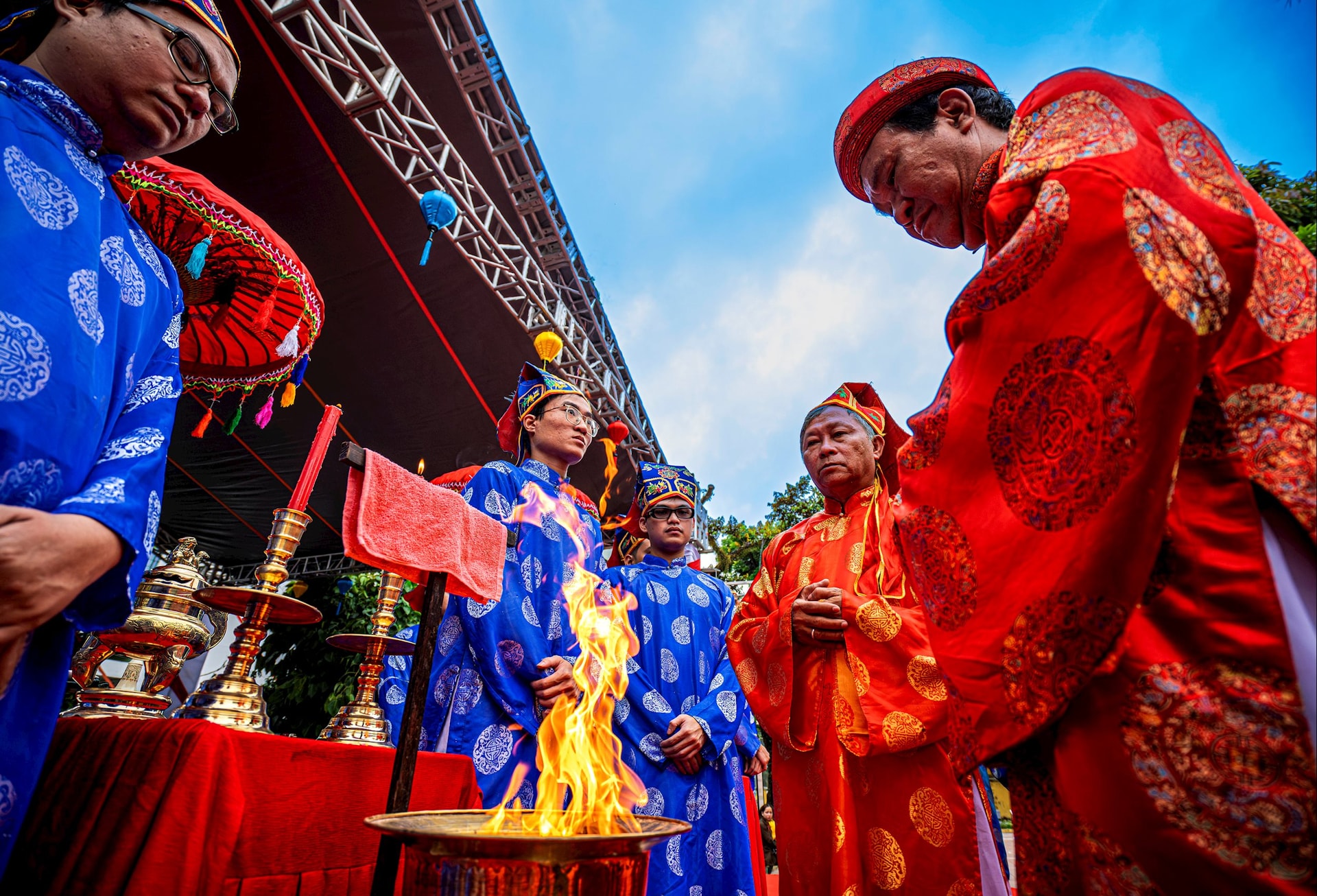
It is a land where culture lives, breathes, is debated and preserved as a matter of survival.
Take culture as the soul
In the new development context of the country, Da Nang city is positioned as the financial center of the Central region, gradually shaping a dynamic and bustling urban appearance no less than growth poles such as Hanoi or Ho Chi Minh City.
However, the true identity and vitality of a developed city cannot be measured solely by high-rise density, foreign direct investment flows, or quarterly GDP growth figures. A city is only truly sustainable if it is supported by enduring internal values. These are culture, lifestyle, community spirit, and historical character.
Whether Da Nang strives to become any other modern urban form, the core for all those efforts to be truly meaningful and sustainable is to lay the foundation of culture as the soul, the spiritual source that guides each step forward. For a young city but rich in historical miracles like Da Nang, culture is an ontological difference in the urbanization model, built up by layers of cultural sediments from the land once known as " Quang Nam country" in ancient history, a special historical space where the spirit of education, commerce and heritage converge.
Looking back at the entire history of Quang Nam, it can be seen that the formation and development of Quang Nam - Da Nang is a journey of interwoven cultural layers, of the past always going hand in hand with the present, of an identity that is constantly moving. It is thanks to placing culture as the foundation and not just as a supplement that this land has maintained its identity in the midst of change, reaching out to modernity without losing its memory. And thanks to that, Da Nang today can step into the future as a brave urban center, where the national soul is revived in every construction, person and development orientation.
Preserving culture through education
If cultural values are to be preserved and promoted, the most fundamental way must be based on education and from education. In a broad sense, cultural education does not stop at school. It is the process of transmitting, inheriting and recreating the system of values, memories and human qualities through many generations. It takes place in the village communal house, in the corner of the rural market, in fairy tales told before bedtime, in village festivals, or in the way a child is taught to bow to adults. It is these “unorthodox” experiences that are the deepest part of cultural education, and also where people learn to live together, live responsibly, live meaningfully and with love.
In the journey of maturity and intellectual enlightenment, an educated person is evaluated through many different perspectives, but the key point still lies in the profound, sustainable qualities that are nurtured and refined over time. These are fundamental values but play a decisive role in forming thinking, lifestyle and dedication to the surrounding community.
These values cannot be acquired after only a few years of university. No one expects a 22-year-old student to possess all of these qualities. But universities, if they truly understand their mission, can and should create an appropriate environment for these qualities to germinate and grow. Not by imposing a set list of subjects, but by creating a vibrant educational space where students learn through daily interactions, through frank exchanges, through the spirit of discovery, and most of all through the living examples of teachers and friends who are living fully with the ideals of knowledge and kindness.
Because these qualities are pervasive and are formed through interaction, they shape not only the learner on campus, but also have a lasting impact on the society they will help create. That is why university programs are never just a matter of the school or the education sector, but a matter of society as a whole. Because they are shaping the kind of people we want to see in the future.
An educated and cultured person is a model of a complete individual in terms of capacity and a seed of social beautification. They contribute to creating a community that respects knowledge, promotes human dignity and preserves good values for a long time.
A nation that wants to be strong in the long term cannot only rely on skilled citizens, but also needs kind people who know how to live for others and for the common future. And kind people, in the end, are the crystallization of an education that knows how to aim for cultural depth, and a culture that knows how to support and enlighten education to develop in the right direction. Although silent, it is the combination of education and culture that plays a decisive role in forming thinking, orienting lifestyle, and fostering a spirit of lasting dedication to the community and the country.
The dream of a humane city
The concept of a cultural lifestyle is not just a set of rigid rules or just refers to the external appearance of a “proper” individual, but is a profound expression of the inner self that has been nurtured in a culture rich in character. It is present from very small things, such as a warm greeting, a gesture of listening without haste, to great things such as an attitude of responsibility towards the community, treatment of nature, and loyalty to the core values of the nation.
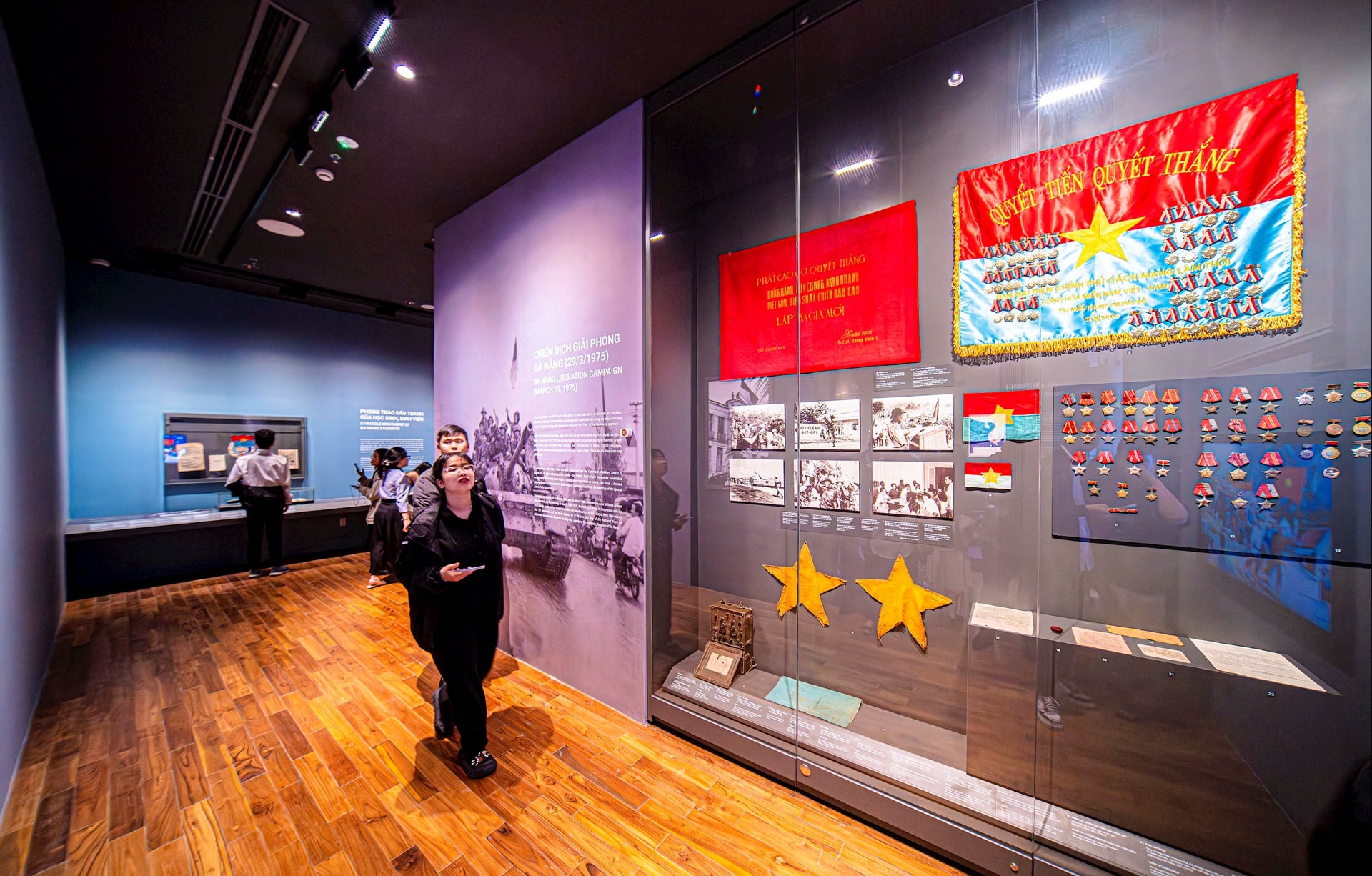
Cultural lifestyle, in addition to the external expression of personal life, is also a core component of national identity, reflecting the deepest soul, personality and stature of a nation. From daily behavior to thinking choices, culture is always present as an undercurrent that illuminates how people live together and what they live for.
In the ever-changing flow of the country, Da Nang city is also gradually transforming itself to become more modern, smarter, more vibrant, aiming to become a financial city, an international tourist destination, a technology and startup center. But amidst these advances, how can modernization not mean losing oneself? How can a city be called "worth living" not only because of the numbers of income, infrastructure or growth rate, but also because of the depth of a humane life? How can every citizen here be nurtured with sustainable cultural values?
That question becomes even more urgent as today’s young generation grows up in a different world. A world of complete digitalization, tourism of living space, globalization of thinking, and the strong rise of artificial intelligence. In that vortex, without the support of local memories and vivid cultural experiences, people easily fall into a state of dislocation and disconnection from their roots. It is not just a generation gap, but a cultural gap, a void that is difficult to fill with technology or material comforts.
Cultural education, therefore, cannot be a sideline, and cannot be replaced by dry skill models. It must return to being the soul of comprehensive education, where people are not only good, but also profound; not only successful, but also kind. And it is from that foundation that Da Nang can reach the dream of becoming a cultural urban center and each person is a "living cultural bearer" accompanying the city on its journey of growth.
In other words, only when education puts culture at the core will each citizen become a “living cultural bearer”, contributing to the city in its development journey. That foundation will answer the question: What must Da Nang City do to modernize without losing itself?
Source: https://baodanang.vn/van-hoa-va-giao-duc-nen-tang-de-da-nang-phat-trien-hien-dai-ma-nhan-van-3301216.html


![[Photo] Prime Minister Pham Minh Chinh chairs a meeting of the Government Standing Committee to remove obstacles for projects.](https://vphoto.vietnam.vn/thumb/1200x675/vietnam/resource/IMAGE/2025/10/06/1759768638313_dsc-9023-jpg.webp)
![[Photo] Prime Minister Pham Minh Chinh chaired a meeting of the Steering Committee on the arrangement of public service units under ministries, branches and localities.](https://vphoto.vietnam.vn/thumb/1200x675/vietnam/resource/IMAGE/2025/10/06/1759767137532_dsc-8743-jpg.webp)




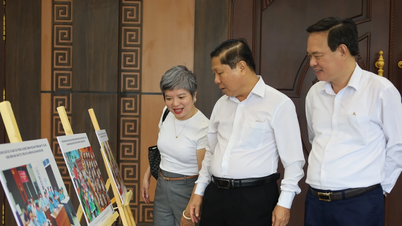

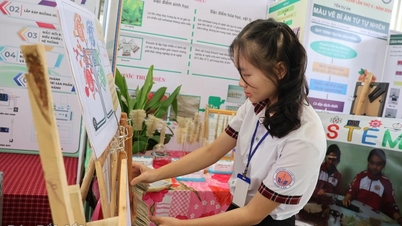

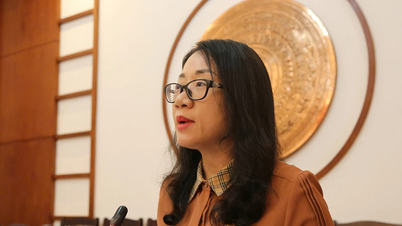
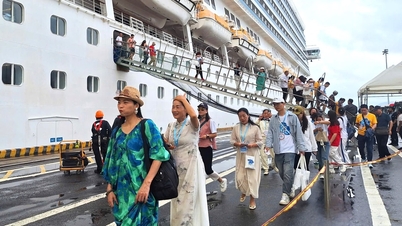
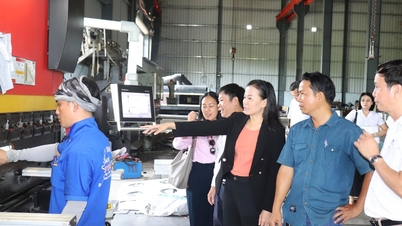


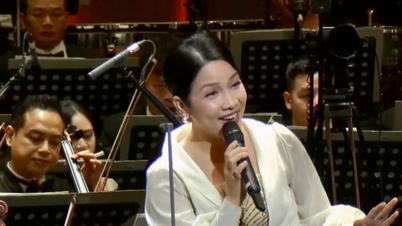




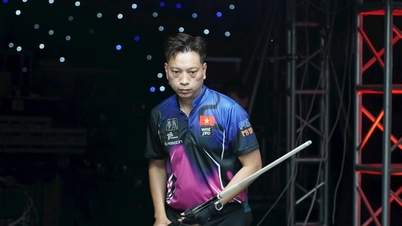








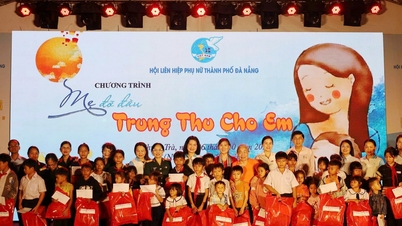





















































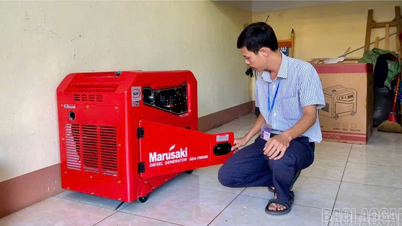










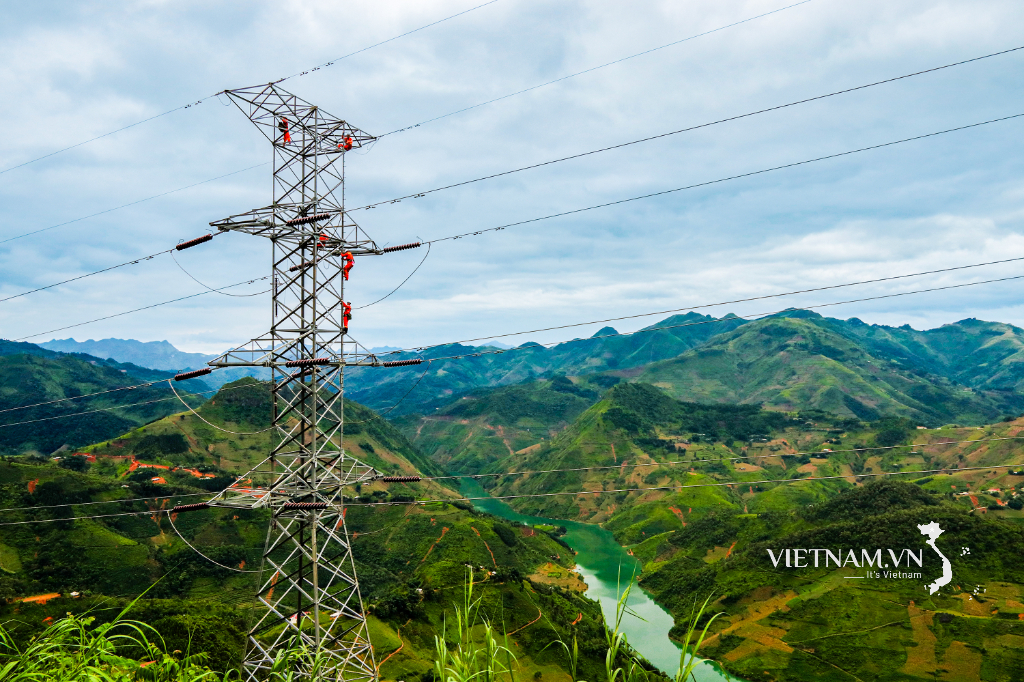


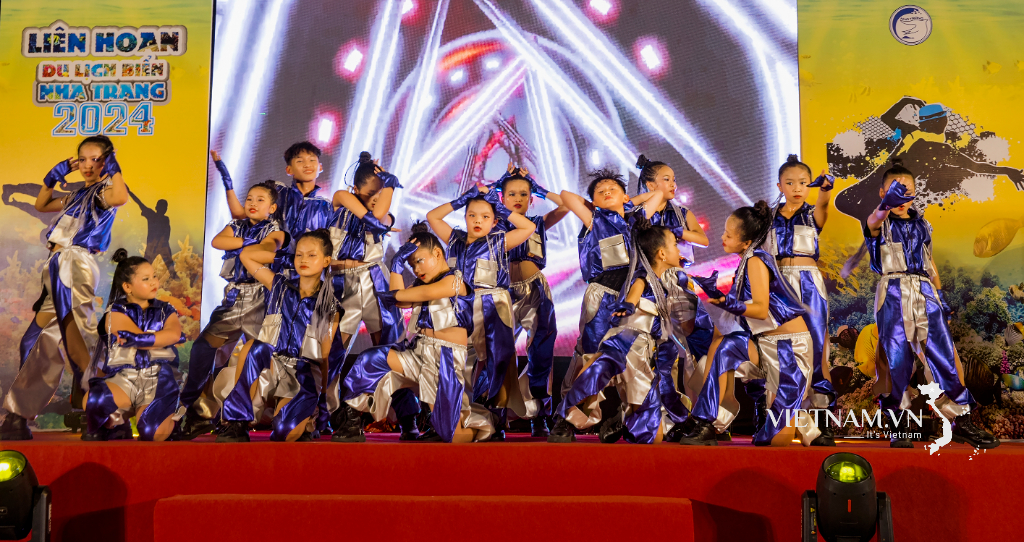
Comment (0)